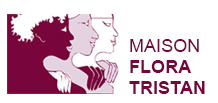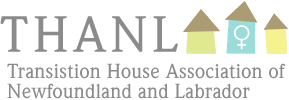In May 2019, Women’s Shelters Canada received a $124,000 grant from the Canadian Mortgage and Housing Corporation to conduct a mixed methods study on second stage shelters. This is the first national research study of its kind.
There is a significant research and policy gap in understanding the scope of the work of second stage shelters for survivors of intimate partner violence (IPV). Although there have been two provincial studies (Quebec and Alberta) on second stage shelters, there has been no national analysis on the extent of their services and supports or value and efficacy of second stage housing for IPV survivors.
WSC’s 2017/2018 survey on Violence Against Women shelters received 85 responses from second stage shelters (representing 68.5% of the 125 known second stage shelters). The data revealed important information on second stage shelters including information on the physical buildings, number of units, the age of the shelters, programs, staffing, and challenges they face. While this data provided foundational knowledge on these shelters, there is still much to be known about how they operate, housing supports, and how effective these programs are in how they help women secure permanent, safe and appropriate housing and develop resiliency and heal from trauma.
This study aims to address this knowledge gap and discover the breadth of programming and supports provided by these shelters and how they prioritize women’s safety, help women build a network of support, and prevent women from returning to their abusers and avoid homelessness.
The research project includes 4 key activities:
- Extensive literature review (August 2019)
- National survey (Fall 2019)
- On-site visits and interviews with shelter workers and current and former residents of second stage shelters in five regions across the country (Fall 2019/Winter 2020)
- National consultation and focus group with experts on second stage shelters (Winter 2020)
Study Advisory Committee Members
- Barb McInerney, Kaushee’s Place Housing Society, Yukon Women’s Transition Home Society, Yukon
- Cindy Chaisson, Yukon Women’s Transition Home Society, Yukon
- Michelle Martins, Tamitik Status of Women, British Columbia
- Ebony Rempel, Odyssey House/Serenity Place, Alberta
- Marlene Ham, OAITH, Ontario
- Gaëlle Fedida, L’Alliance, Quebec
- Chloé Deraiche, Maison Flora Tristan, Québec
- Dan Meads, THANL, Newfoundland and Labrador
If you have any questions or would like to know more about this study contact Kyla Tanner, Development Project Manager, at ktanner@endvaw.ca.
For more information on the Quebec and Alberta studies, see:
Tanguy, A., Cousineau, M., Fedida, G. (2017, September). «Impact des services en maison d’hébergement de deuxième étape : rapport de recherche.» Montreal, QC.
Alberta Council of Women’s Shelters. (2017). “A Safe Path Home: Solving Homelessness and Domestic Violence in Alberta.”
Hoffart, I. (2015). “Second Stage Shelter Project: Transitioning from Domestic Violence to Stability.” Alberta Council of Women’s Shelters.








